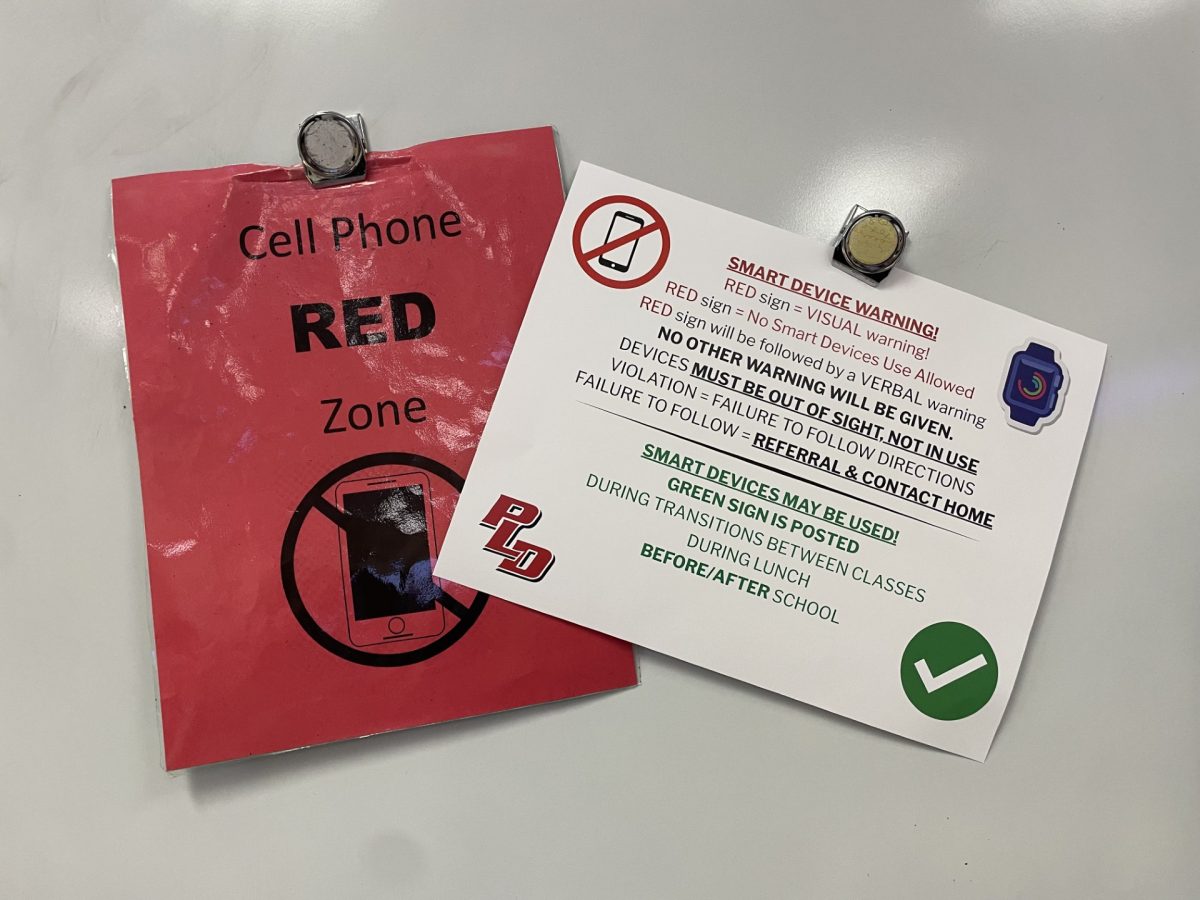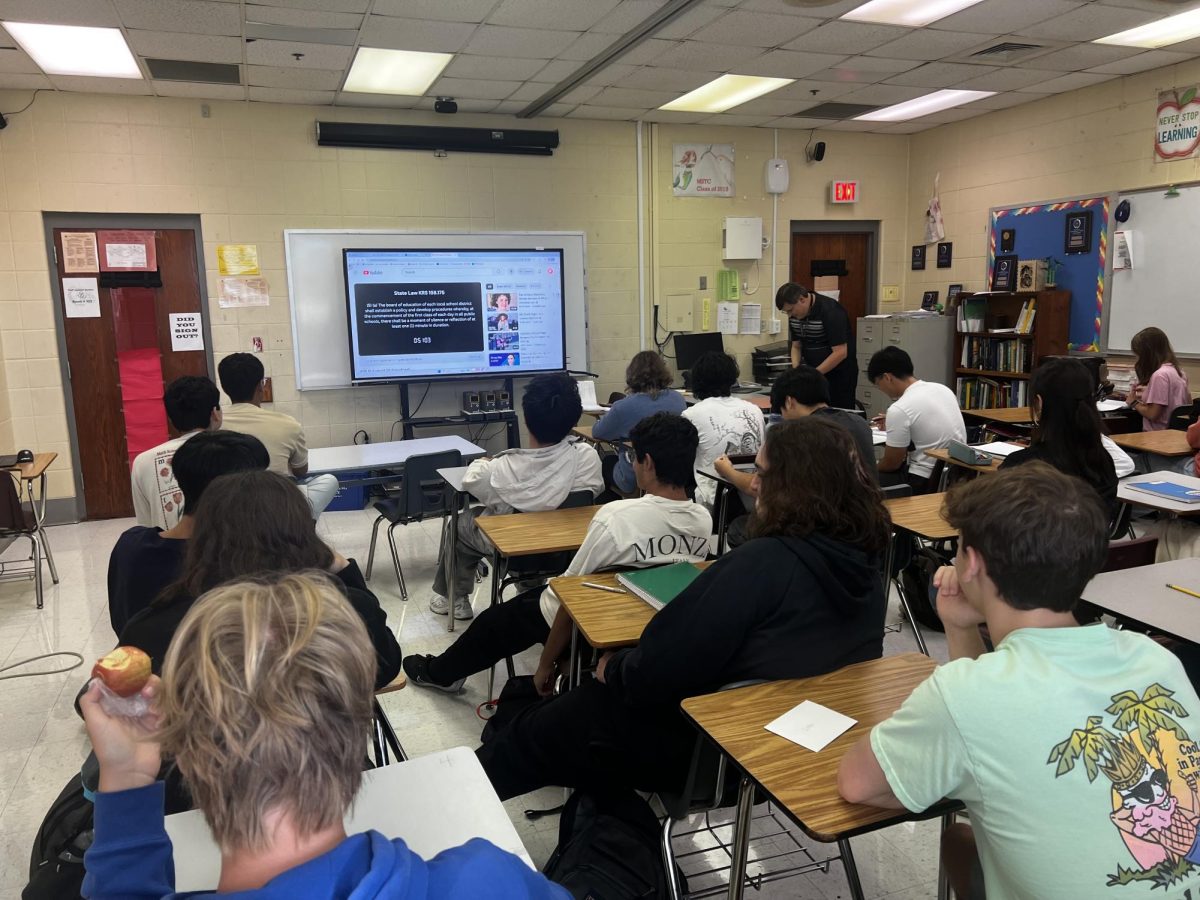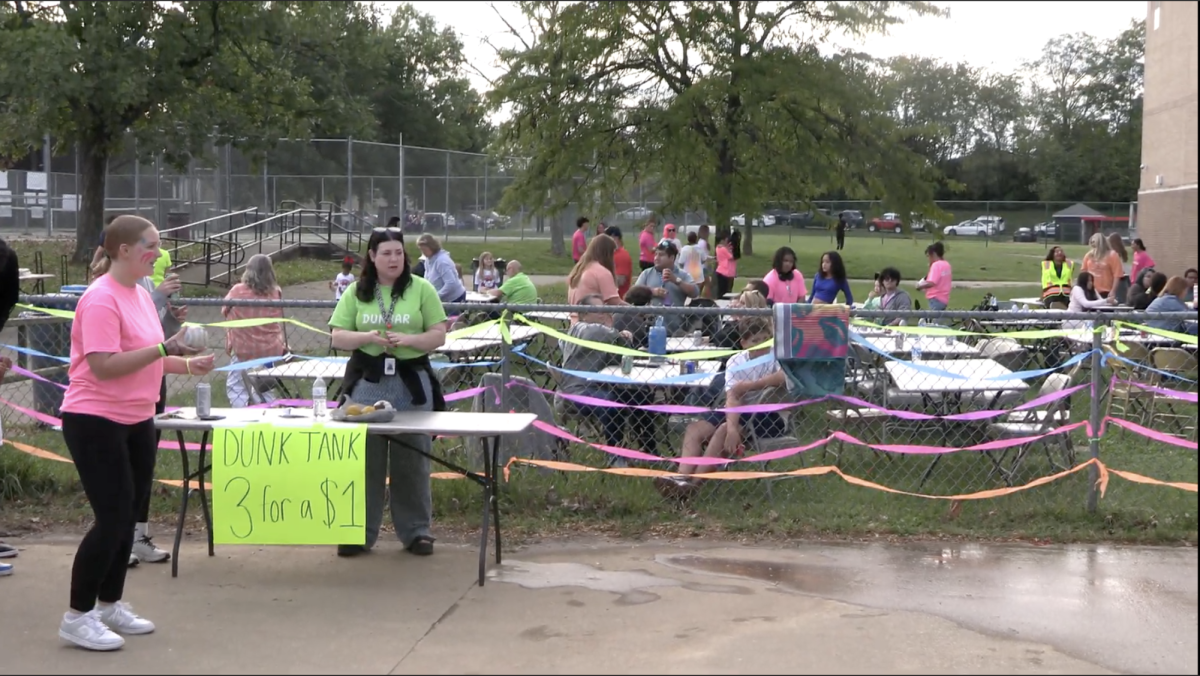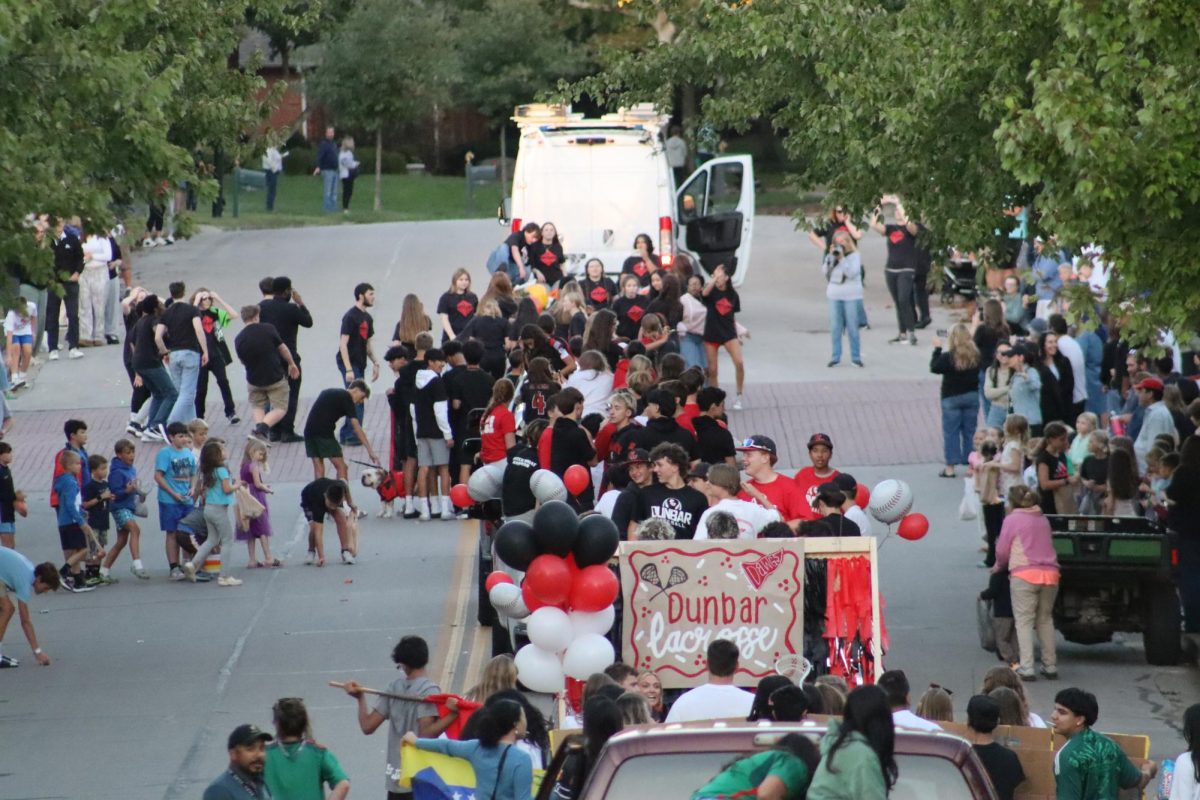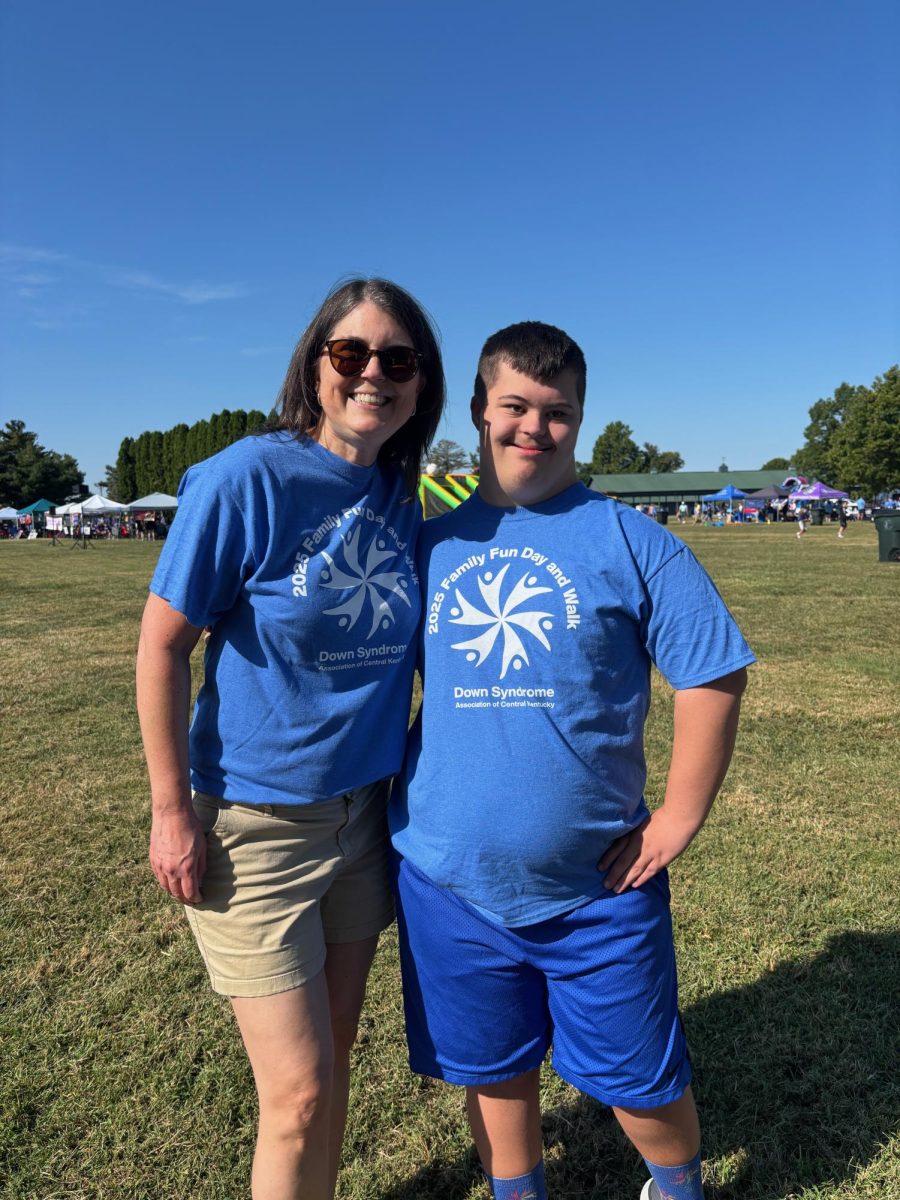For many female runners, a recent tragedy reinforced the fears they already carry.
Laken Riley was reported missing from her morning  run on the University of Georgia’s campus. Her body was found later that day in the woods.
run on the University of Georgia’s campus. Her body was found later that day in the woods.
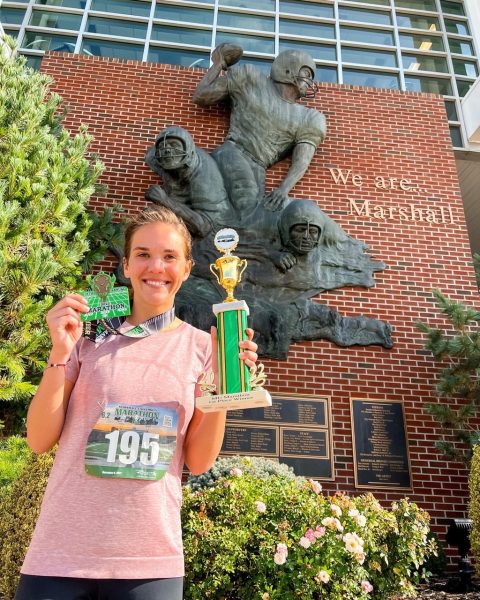
Dunbar’s Track and Field coach, Kylie Rutherford, said “Whenever something like this happens to a runner…that bothers me because I am always in the situation of ‘that could easily have been me.'”
Coach Rutherford said that she started to become more conscious of herself as a teenager.
“That’s when I started running alone, and at that age, you develop more and I noticed more and more people honking their horns or yelling at me, and I’m like ‘I’m 16 years old.’”
Current students also feel this way.
“If I pass a man, I’m always looking behind me and making sure he hasn’t turned around or followed me,” junior Kate Bryant said. “If I went out for a run today and I got catcalled I wouldn’t even be surprised.”
Many female students share the expectation of harassment–and not just when they are alone. Students on the track team at Dunbar often run together after school.
Freshman Lily Hautau said that she gets honked at and catcalled even when running with her team.
Sophomore Emma Finley said that she also experiences this with her teammates.
Even teachers at Dunbar have had uncomfortable encounters with men during their runs.
PLD French teacher, Jennifer McNely, said that a man once approached her and said: “‘You are one sexy woman, and you have such beautiful eyes.”
She said that she responded, “I’m wearing sunglasses.”
Unlike her, McNely said that her husband leaves without his phone when going outside for a workout, and he even feels comfortable going out in the dark.
“It’s frustrating because I don’t deserve to be assaulted because I’m living my life and existing,” she said. “I’m just trying to work out.”
Even though the neighborhoods around Dunbar are suburban and considered safe by many, Bryant said she even feels unsafe running there.
“I was running, and this blue car just slowed down right next to me,” she said. “I saw it was a man so I just turned back around and sprinted back onto the road.”
Even if scaring her wasn’t his intention, she said she would rather be safe than sorry.
Another student described two different incidents in which she was nearly kidnapped.
“It was early in the morning, and I noticed this man’s car looping around me so I took one airpod out just in case. I thought he was going to pass me, but he kept driving slowly behind me and he pulled up,” sophomore Laura Denham said. “I was only a few feet away from my house, but it was starting to freak me out.”
She said that he rolled down his window, and said “Get in the car.”
“He opened his door like he was going to grab me,” she said.
Denham said that she ran from him and when she got home, she and her mom called the police.
Many students, coaches, and teachers said they started taking precautions to avoid these situations.
Coach Rutherford now texts her parents when she is going out for a run and she removes her Airpods so she can be more aware.
“I was still in college, 6-7 years ago, and I noticed a car following me. I started making zigzags to try and throw them off and they still somehow found me,” she said. “They yelled out the window, and I’d ignore them, but then they’d call me words you can only call women.”
She said she was near a park when this happened and knew she needed to end her run early.
“My two choices were either run to the park or the police station.”
McNely said that there are two ways female runners can face this dilemma.
“You can be petrified,” she said, “and you can stay at home and never leave or you can say ‘I can’t let them win.'”
Even with the safety concerns, women at Dunbar refuse to back down.
“I love running. I just love it,” McNely said. “It’s just me–I’m Jen. I’m not someone’s mom or anyone’s wife. I’m just me.”
Although the issues women face as runners are alarming, the joy of running is more powerful.



